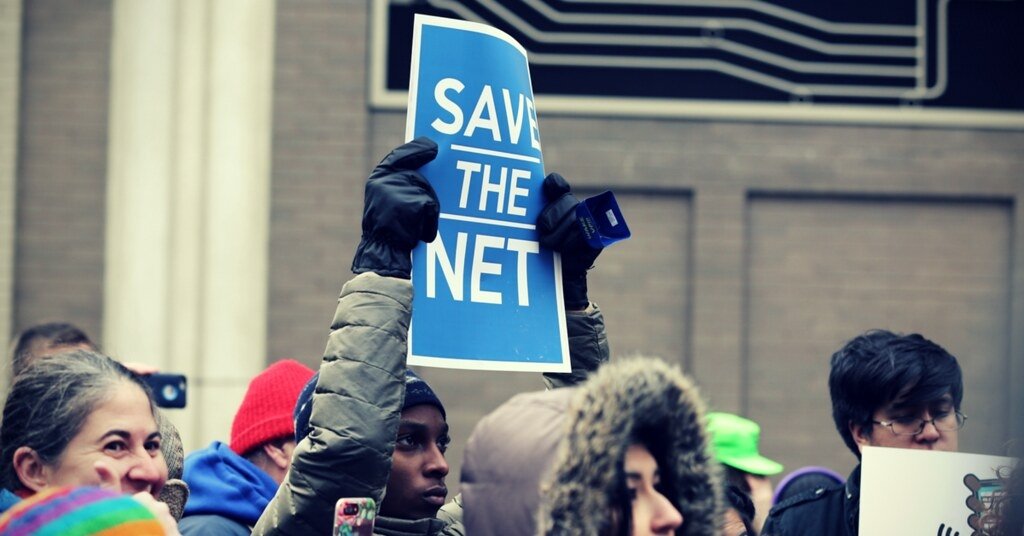Public-Interest Groups Decline to Seek Supreme Court Review of FCC Open Internet Rules

Organizations that intervened in the legal case will pursue other federal and state solutions rather than relief from the Roberts Court.
WASHINGTON — On Friday, Free Press, the Benton Institute for Broadband & Society, New America’s Open Technology Institute and Public Knowledge announced that they will not file a petition for certiorari seeking Supreme Court review of a lower-court decision that struck down federal Net Neutrality rules. The overturned Federal Communications Commission decision had also classified broadband internet-access services under Title II of the Communications Act.
In April 2024, the Biden FCC properly declared that broadband-internet access is a “telecommunications service.” That restored the agency’s jurisdiction over these crucial connections, allowing it to hold powerful companies accountable for providing internet-access service on just, reasonable and nondiscriminatory terms. The FCC at that time also reinstated its Net Neutrality rules, and made allowance for a wide range of consumer protections to improve public safety, broadband reliability and internet affordability.
Predictably, the cable and phone industries filed suit over the legal definitions at issue in the case, and on the demonstrably false premise that these commonsense rules harmed their investment in broadband infrastructure. The public-interest groups intervened in the appellate case to defend the FCC’s decisions. The organizations filed a brief in September 2024 (along with the National Association of Regulatory Utility Commissioners) and then took part in oral argument before the 6th Circuit Court of Appeals in October.
In January 2025, that court overturned the FCC’s decision on the basis of unprecedented legal grounds and flawed technological arguments. Over the past quarter century, jurists including the late Supreme Court Justice Antonin Scalia and appeals-court judges in other circuits typically understood that broadband is a telecom service offering the basic function of transmitting data for its customers. The 6th Circuit wrongly held that broadband is what the law calls an “information service,” which is subject to far less stringent FCC safeguards. The time period for intervenors to seek Supreme Court review of this decision ended on Aug. 8.
Matt Wood, Free Press vice president of policy and general counsel, said:
“It’s often said that elections have consequences, and so do the agency and judicial appointments the winners make. But no matter their politics, people in America really don’t trust their ISPs. Federal rules safeguarding internet openness, reliability and affordability are just as vital today as always, despite what cable lobbyists and their paid pundits claim. Yet Trump’s election flipped the FCC majority back to ideologues who’ve always taken the broadband industry’s side on this crucial issue. And the justices making up the current Supreme Court majority have shown hostility toward sound legal reasoning on this precise question and a host of other topics too.
“The 6th Circuit’s decision earlier this year was spectacularly wrong, and the protections it struck down are extremely important. But rather than attempting to overcome an agency that changed hands — and a Supreme Court majority that cares very little about the rule of law — we’ll keep fighting for internet affordability and openness in Congress, state legislatures and other court proceedings nationwide.”
John Bergmayer, Public Knowledge legal director, said:
“We are looking forward to continuing to fight for affordable broadband and consumer protection in the states, and to secure a strong legal foundation for broadband oversight at the federal level. We’re disappointed in the outcome of this litigation, but the fight for just and equitable broadband for all is not over.”
Andrew Jay Schwartzman, senior counselor of the Benton Institute for Broadband & Society, said:
“The 6th Circuit decision makes bad policy as well as bad law. Because it is at odds with the holdings of two other circuits, we expect to take the issue to the Supreme Court in a future case.”
Raza Panjwani, senior policy counsel at New America’s Open Technology Institute, said:
“Public-interest advocates have been arguing for basic consumer protections and meaningful oversight of broadband internet-access service for more than 20 years now. Throughout that time, internet service providers have refused to accept these commonsense measures — and their justifications haven’t gotten any more compelling. What has changed is the increasingly antagonistic approach our federal courts are taking to laws and regulations that hold corporations accountable, with judges across the country now ruling that our government is essentially powerless to protect consumers from predatory business practices. Though the 6th Circuit erred egregiously in its decision to overturn the FCC’s 2024 Open Internet order, there are other ways we can advance our fight for consumer protections and ISP accountability than petitioning the Supreme Court to review this case — and, given the current legal landscape, we believe our efforts will be more effective if focused on those alternatives.”
Background
Free Press Legal Director Yanni Chen and Matt Wood offer a detailed explanation of the rationale driving Friday’s decision in a blog post on Free Press’ website. “If you’ve been following the Supreme Court, it should be no surprise that the merits of any given case may not necessarily dictate its outcome,” they argue. Read more here.